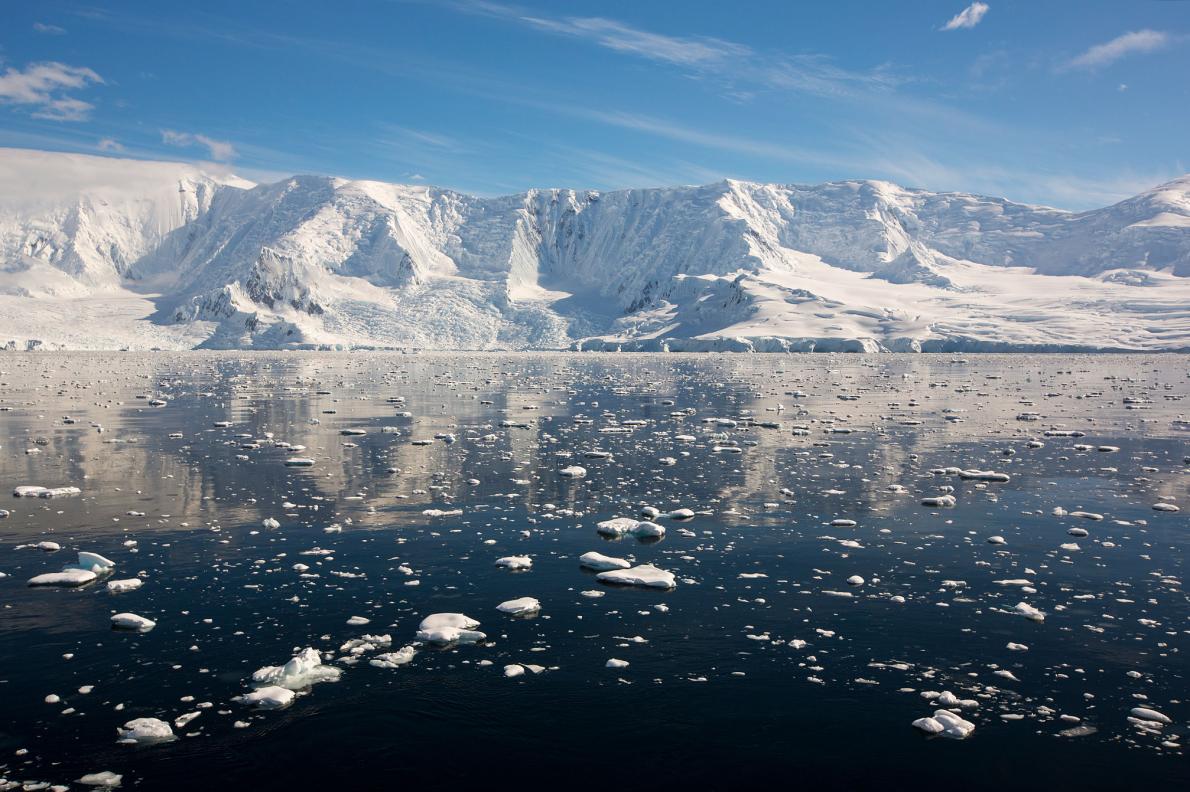Just How Much Could the Sea Rise from Burning Fossil Fuels?

New research predicts a stunning meltoff of the Antarctic Ice Sheet if all of the world’s accessible fossil fuel is burned. New York City would be swallowed by the ocean. Tokyo and Shanghai, too, would vanish.
Sea levels stand to rise by a staggering 164 feet (50 meters) or more if the world goes for broke on fossil fuels, burning all its attainable resources. That’s because the Antarctic Ice Sheet would melt entirely from the warming caused by those emissions, concludes a study published Friday in Science Advances. The researchers say their paper offers the first long-term look at how carbon dioxide emissions from oil, coal, and natural gas would affect the entire ice sheet.
“If we don’t stop dumping our waste CO2 into the sky, land that is now home to more than billion people will one day be underwater,” says study co-author Ken Caldeira, senior scientist at Stanford University’s Carnegie Institution for Science.There’s a bright side, sort of: The full melt would take about 10,000 years. However, at least 100 feet of the swell, as modeled in the paper from scientists in Germany, California, and the United Kingdom, would occur in this millennium, at a rate of more than an inch per year—a harrowing prospect, given that many coastal areas are already seeing land loss and flooding from much more modest sea level increases. To put it bluntly, if we burn it all, we melt it all.
The study highlights the importance of the international aim to prevent global warming beyond 2°C (3.6°F) over pre-industrial levels, a goal that some scientists say is already unrealistic. Meeting that target, the new paper says, would keep Antarctic melting in check, limiting the attendant sea level rise to two meters.
Blowing past that threshold, on the other hand, would stoke the disintegration of the entire ice sheet. Its potential to raise sea levels “far exceeds all other possible contributions” from melting elsewhere, including the Greenland Ice Sheet, the researchers say.
The Intergovernmental Panel on Climate Change says that in order to avoid warming beyond the two-degree target, humans must not emit more than 1,000 metric gigatons (or 1,000 billion tons) total of carbon dioxide. However, current cumulative emissions are already more than halfway there, and burning all accessible fossil fuels would release 10 times that limit.
“To put it bluntly, if we burn it all, we melt it all,” says co-author Ricarda Winkelmann of the Potsdam Institute for Climate Impact Research. The higher temperatures would create a runaway cycle of ice melting and instability, she says: “Once these processes are started, on human time scales, it’s impossible to stop them.”Currently, the researchers say, Antarctica contributes less than 10 percent of the global sea-level rise. If emissions are kept under control, a predicted increase in snowfall would offset the ice loss. If not, the region becomes a driving force for dramatic sea level hike.
Recently, a separate study found that a melting West Antarctic Ice Sheet could boost sea level nearly 8 inches by the end of this century. Dan Martin, a staff scientist at Lawrence Berkeley National Laboratory who co-authored that study, says the idea that the whole ice sheet would melt away in a high-emissions scenario, “I don’t think, is actually surprising to anyone who’s actually thought about these things.”
Still, he says, “it’s useful to think about where we’re ending up, and how we get there is also important.” He notes that researchers are still trying to figure out the details of exactly how climate change will affect the dynamics of ice sheets.
Winkelmann also acknowledges the complexity of the coming picture. The melting that’s occurring in the West Antarctic Ice Sheet might already be unstoppable, but it’s hard to tell exactly how and when the entire mass will respond, she says, because the effects vary from region to region.
Regardless, she notes that we are facing a sea level rise that’s unprecedented in human history.
“Our study shows how important it is to think beyond the next decades, or even the next century,” Winkelmann says, “because we’re changing the face of the planet over the next 10,000 years.”
Source:
Christina Nunez. National Geographic. http://news.nationalgeographic.com/energy/2015/09/150911-antarctic-ice-sheet-sea-level-rise-burning-fossil-fuels/

